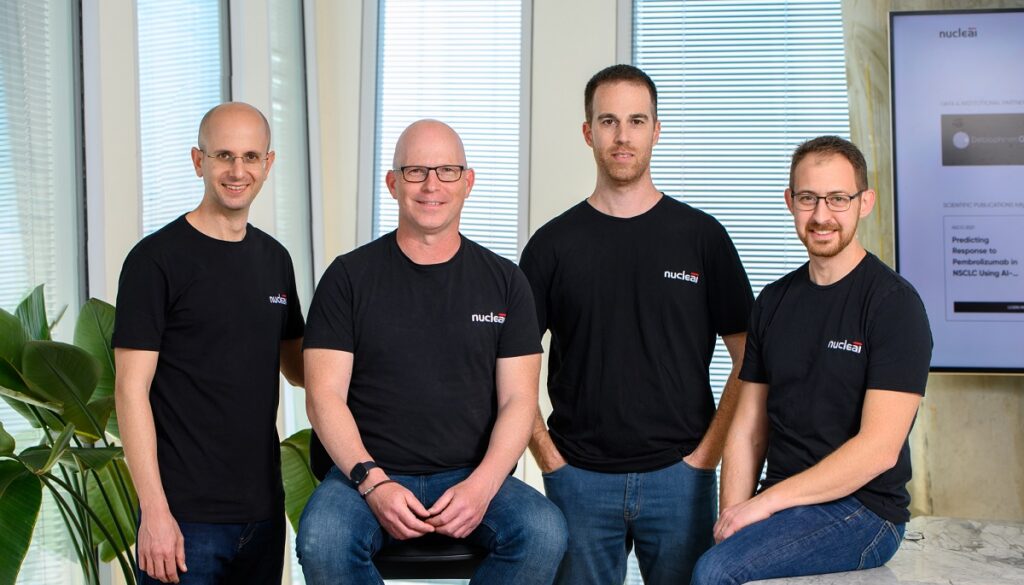Israeli AI-driven spatial biology company Nucleai, announced this week it has raised $33 million in a Series B funding round to further expand its spatial biology platform.
The new capital brings Nucleai’s total funding to nearly $50 million.
The round was led by venture capital firms Section 32 and Sanofi Ventures alongside participation from existing investors Debiopharm, Fosun RZ Capital, Vertex Ventures, and Grove Ventures. Section 32 managing partner Andy Harrison, and Sanofi Ventures global head of digital investments Cris De Luca, will join Nucleai’s board of directors.
Nucleai aims to use the new funds to further develop its platform, expand its commercial footprint across the biopharmaceutical company network, and connect with research organizations (CROs) who are actively applying Nucleai’s technology for research, clinical trial, or drug discovery purposes.
“Nucleai’s vision is to bring spatial biology to the forefront of precision medicine and to embed the use of our platform in every clinical trial involving tissue over the next few years,” said Avi Veidman, CEO of Nucleai. “We are pleased to bring world-class investors who share our passion and vision to transform drug development and clinical treatment decisions by combining artificial intelligence, big data, spatial biology, and a comprehensive software platform.”
Founded in 2017, Nucleai works to evolve drug development and clinical treatment using pathology data and shared resources from most of the leading pharmaceutical companies. Using computational data, the company is able to discover novel biomarkers, predict patient response with higher-quality predictive biomarkers, identify new targets, and develop the next generation of pathology-based companion diagnostics.
“Mapping biological microenvironments with spatial mapping technology is an exciting area of discovery that is paving the way for innovative new therapies and diagnostic tools,” Harrison commented. “Nucleai has built a platform that makes spatial analysis scalable and operational, enabling the next generation of actionable insights from massive pathology datasets that have not been analyzed to their fullest potential and could provide significant value to pharmaceutical companies and diagnostic labs.”
“By harnessing artificial intelligence with spatial data and other data modalities, Nucleai is enabling researchers and clinicians to make better treatment decisions for patients based on a comprehensive, holistic view of cellular locations, interactions, and the tumor microenvironment,” added De Luca.
Related posts

Israeli AI Safety Tool Among TIME’S Best Inventions For 2024

TAU Team Discovers Mechanism To Eliminate Cancerous Tumors

Ashdod Port Investing In Startups As Part Of Innovation Strategy




Facebook comments